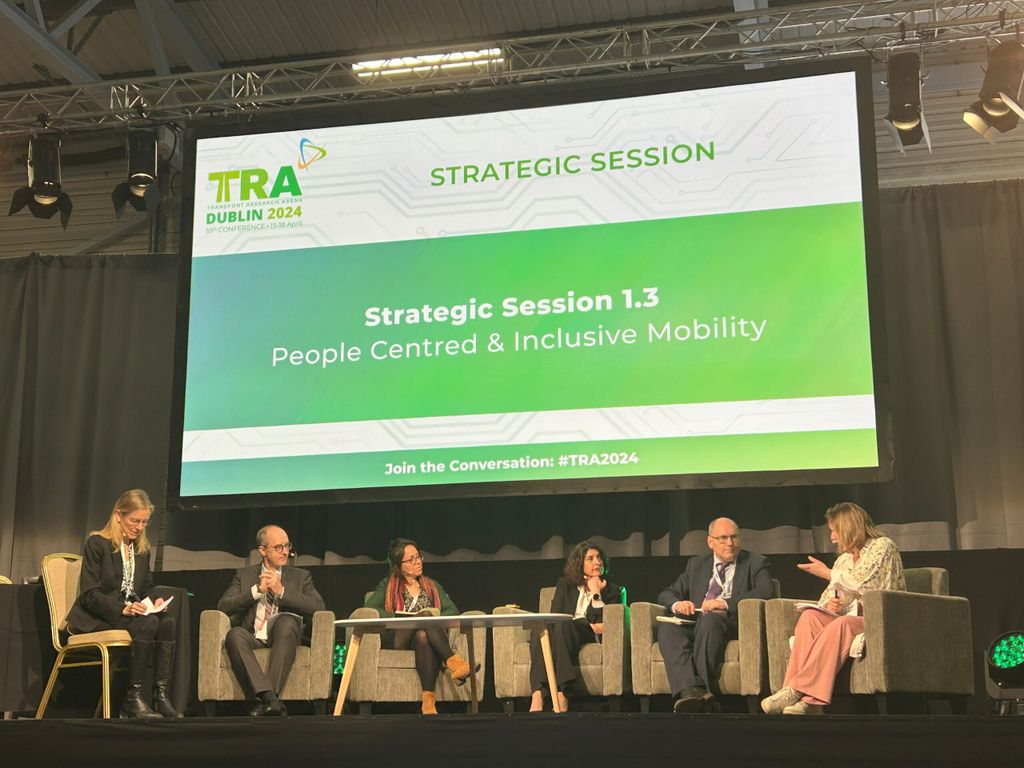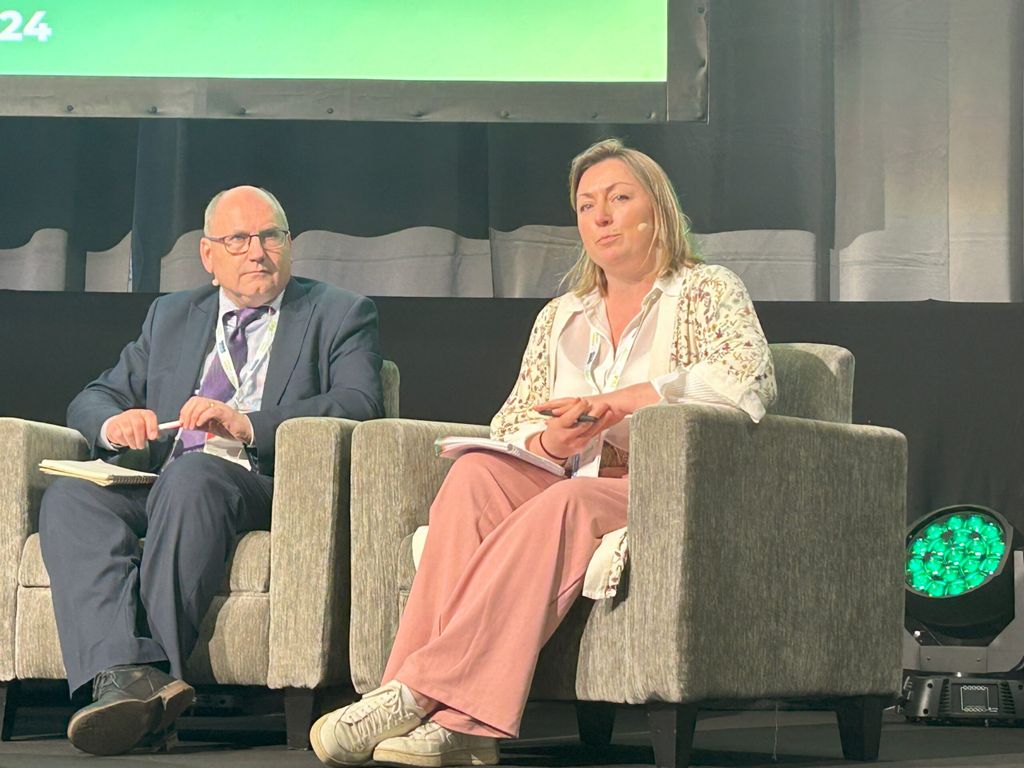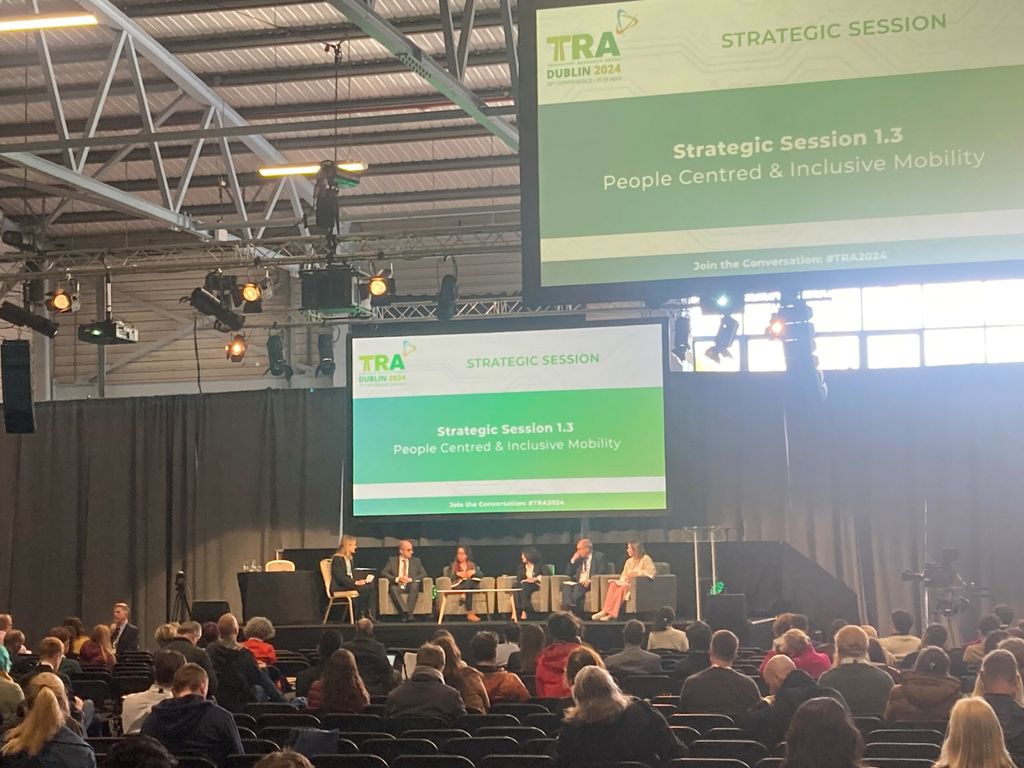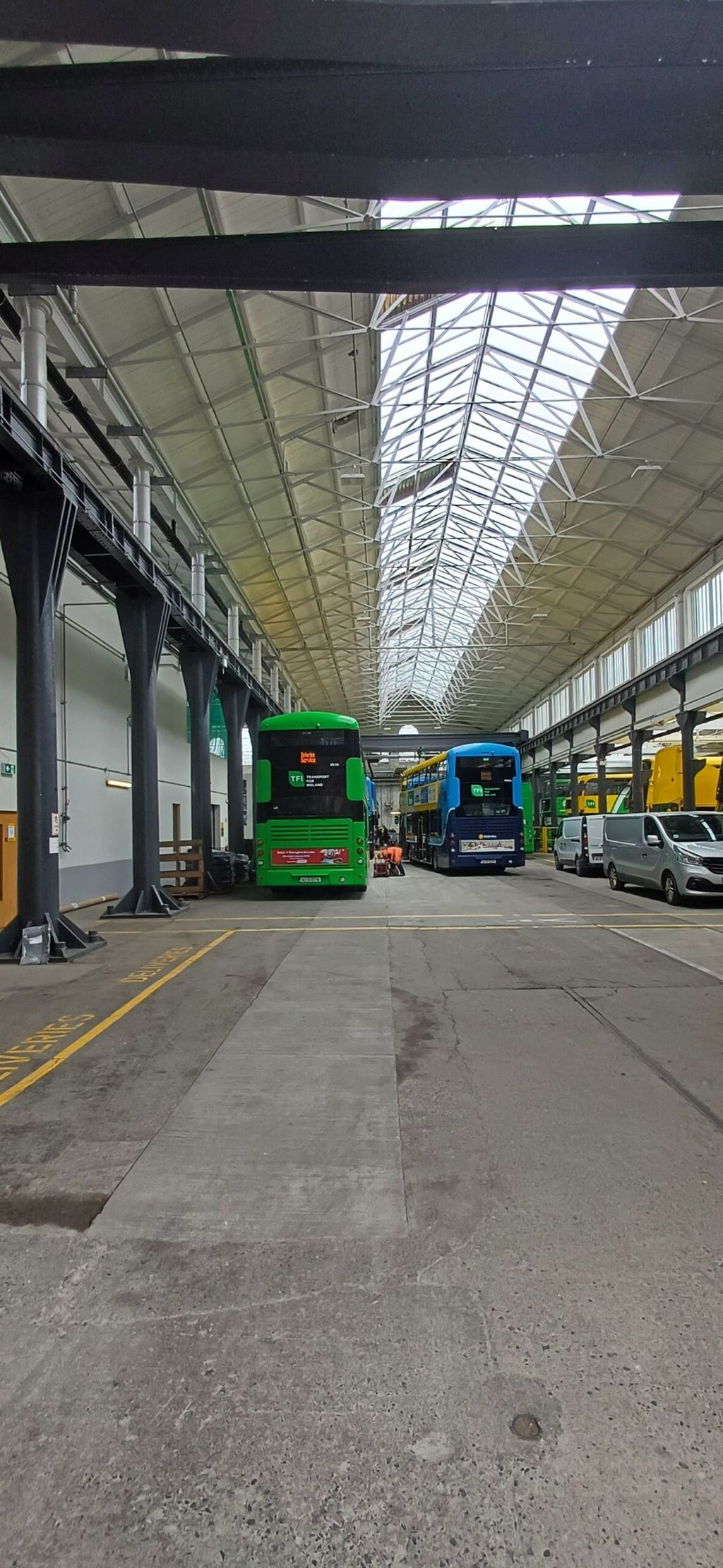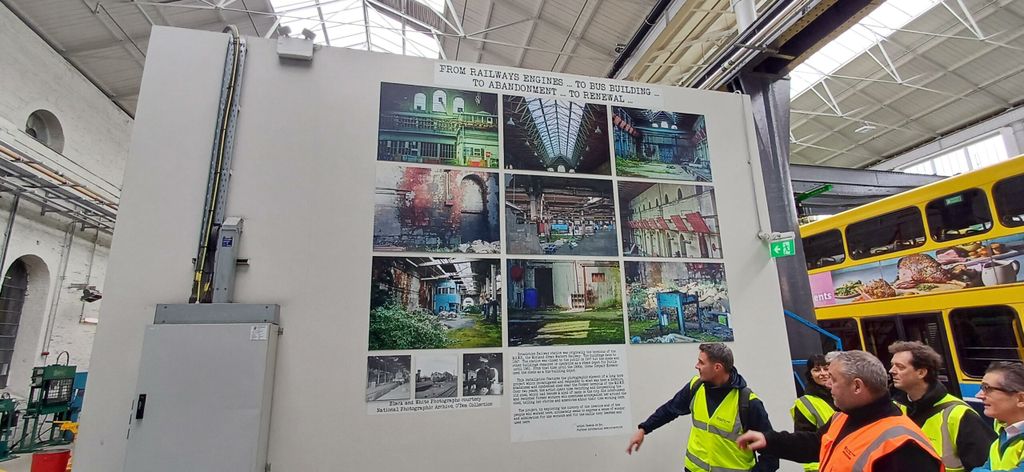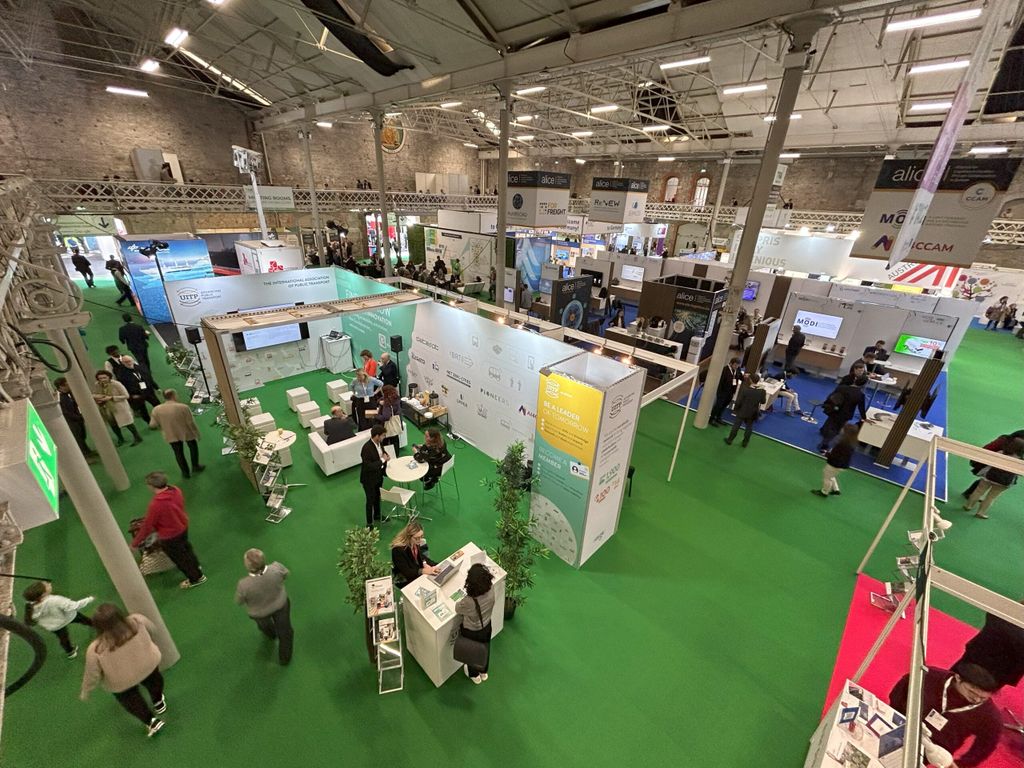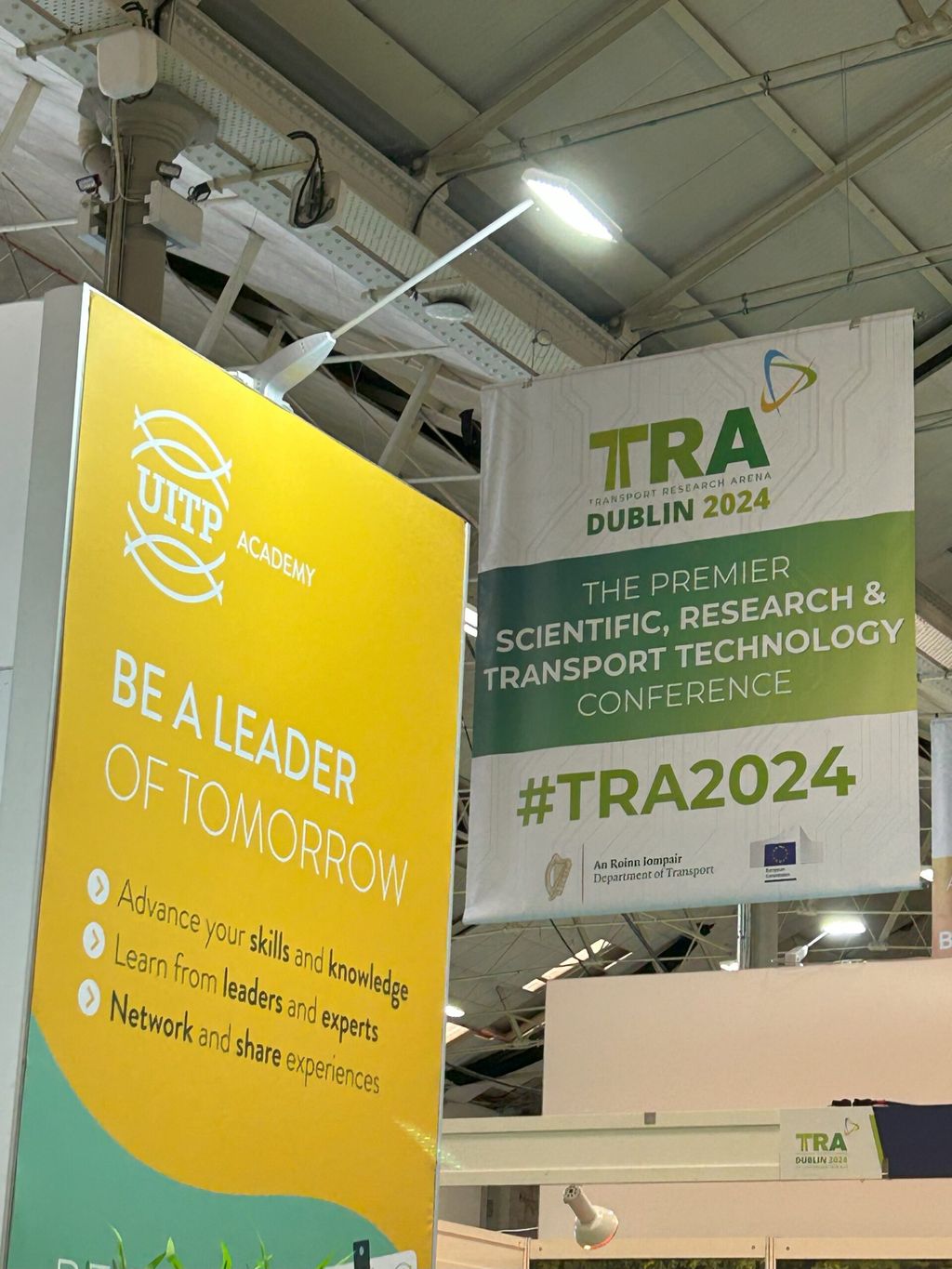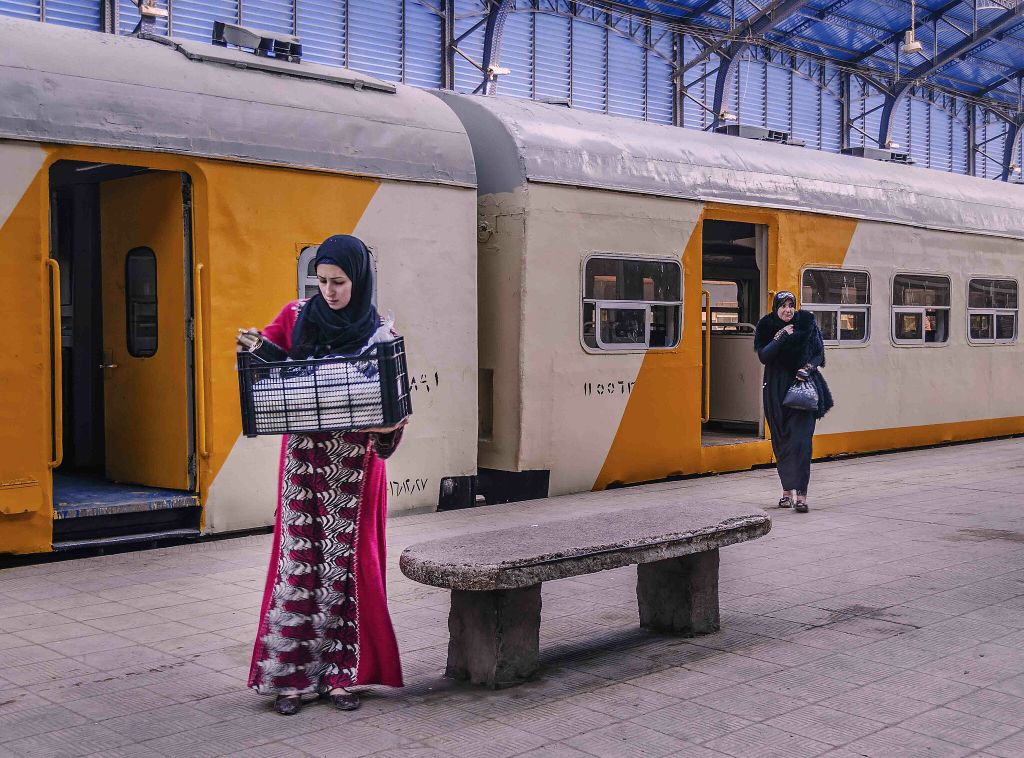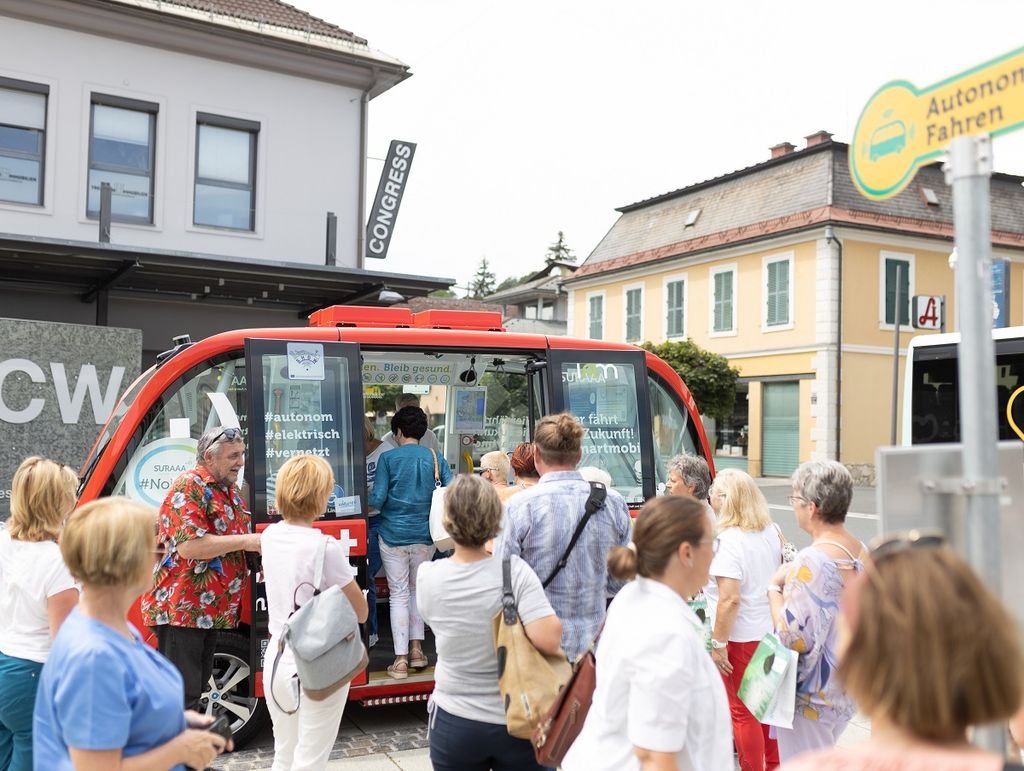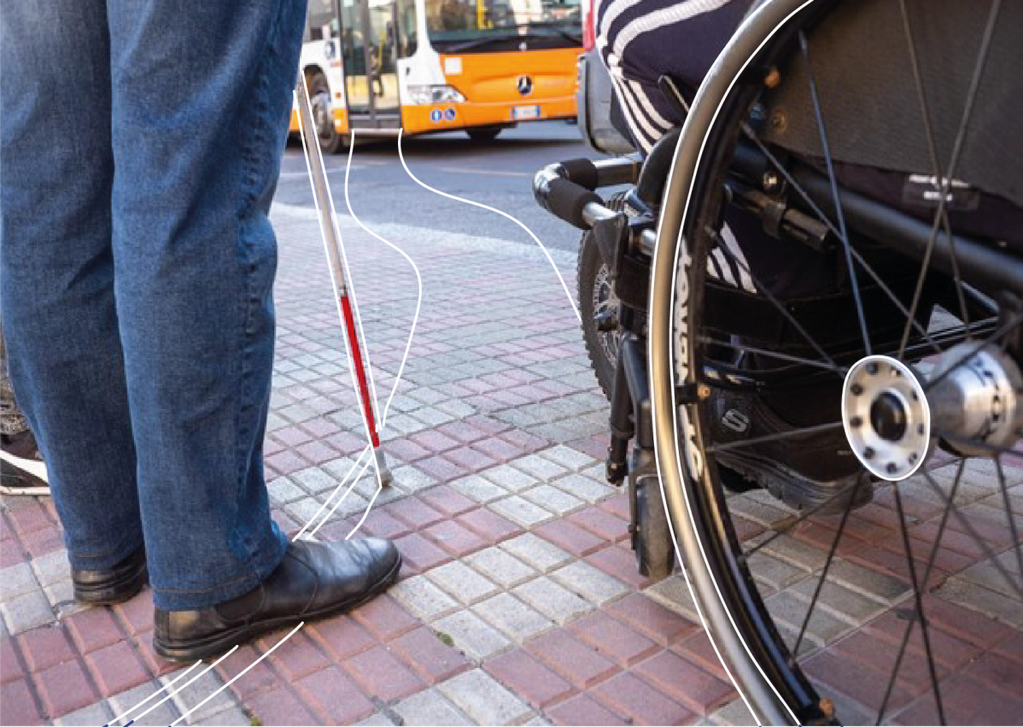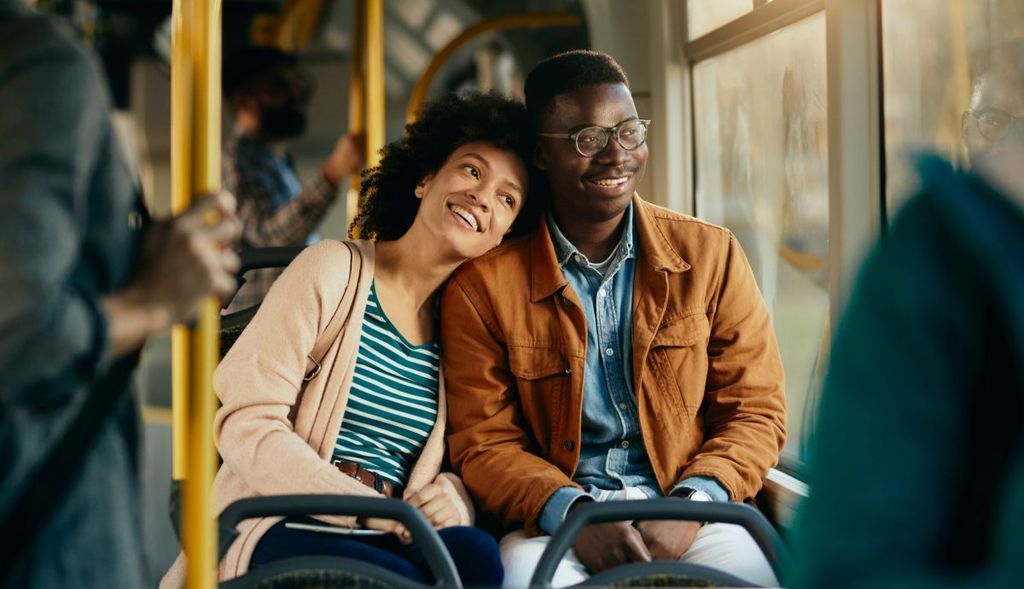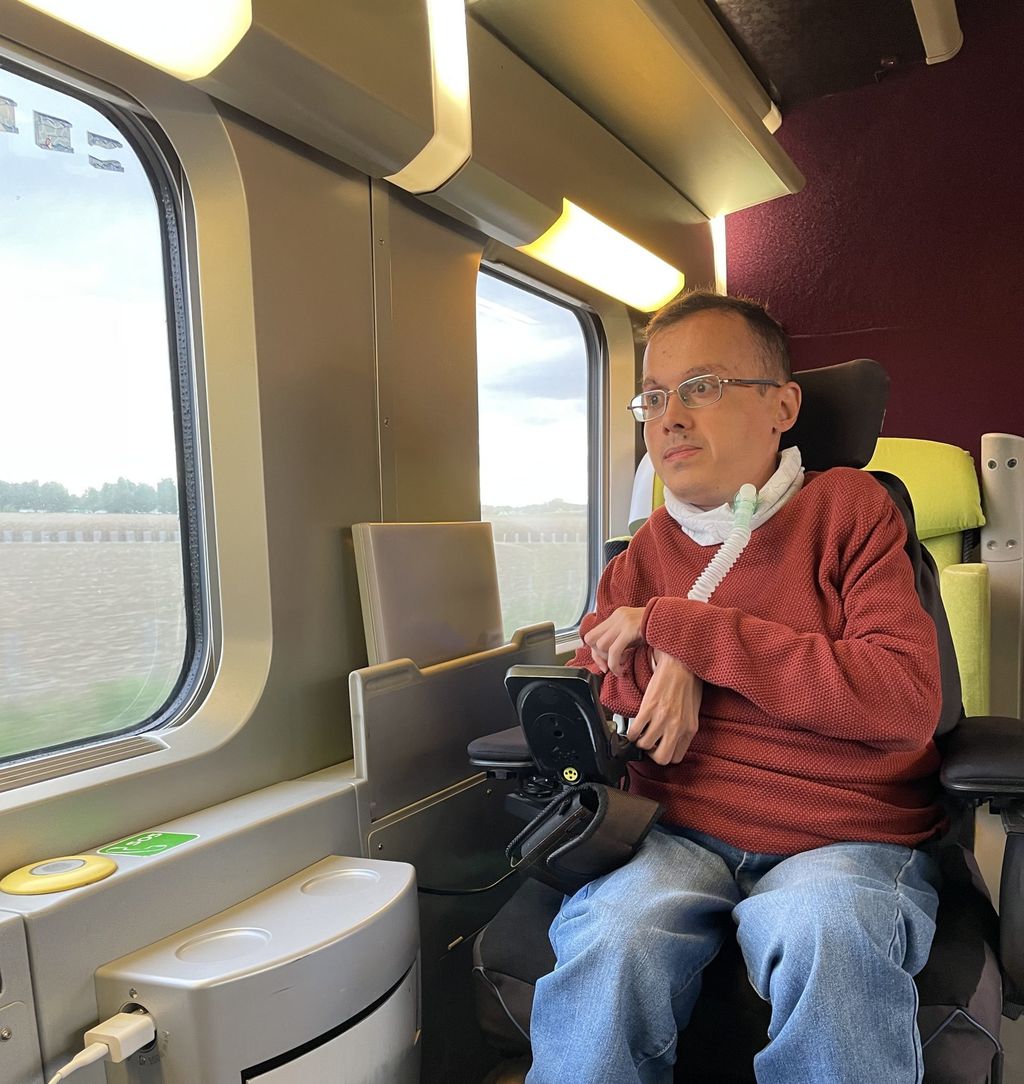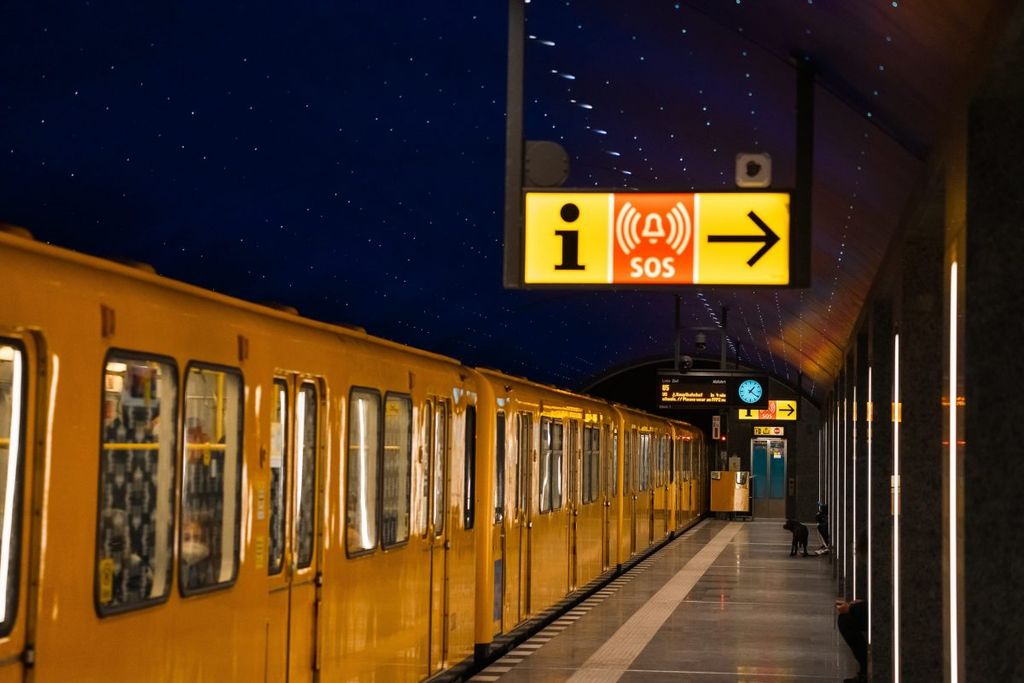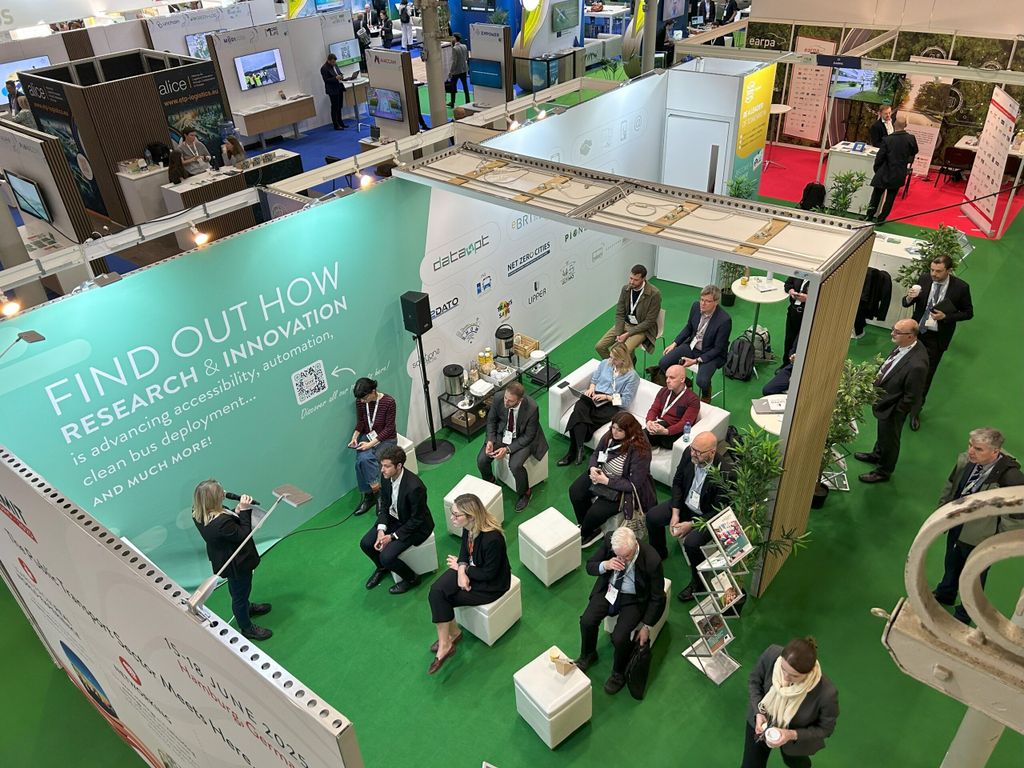
The future of public transport is safe and inclusive: UITP at TRA 2024
Futureproofing public transport
Public transport is an essential solution to the challenges of the 21st century. From rapid decarbonisation, climate adaptation, and growing urban density, the world of the future cannot do without safe and inclusive public transport. As UITP President Renée Amilcar said at the UN General Assembly, “public transport is the sustainable solution we need for people, progress, and our planet”.
To advance the public transport of tomorrow, today’s research and innovation is vital. In short, to deliver safe and inclusive mobility, the public transport sector must focus on building three abilities: anticipation, resiliency, and capacity.
“What has become normal is change. And the speed of change has increased. Futureproofing is being ready for challenges, not only adapting to them. It is becoming resilient as an organisation.”
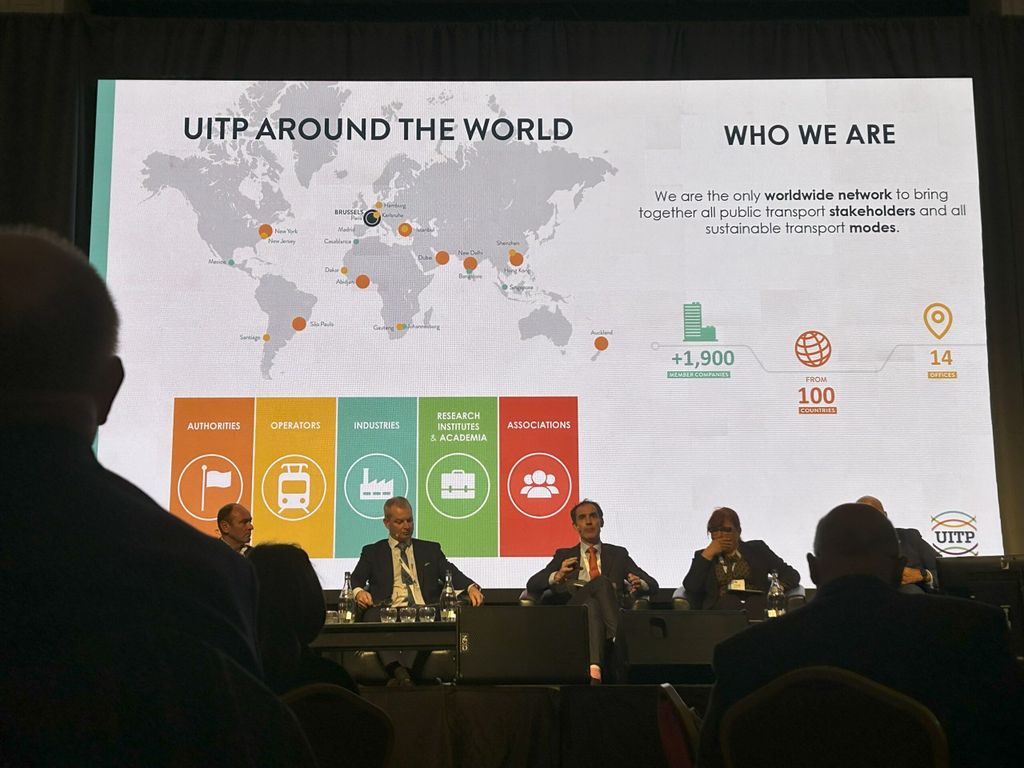
of the Transport Research Arena 2024
UITP is active more than a dozen mobility research projects that work to develop frameworks and deploy trials on key topics like automated vehicles, bus rapid transit, and road safety. At the Transport Research Arena 2024 in Dublin, Ireland, UITP’s experts shared their insights with other professionals from public transport organisations across the world.
Read below what UITP brought to the discussion on some of the most pressing topics in public transport!
At TRA 2024, UITP showed once more our central role in R&I for urban mobility. Our research touches upon advancing public transport from many angles: data exchange, electrification, global collaboration, and many more. The active involvement of our members and their uptake of project outputs show the true value of R&I efforts for them as well as for the sector as a whole. We are proud to foster our ongoing collaboration with the EC to keep leading the R&I that is needed to keep our sector moving forward.
Inclusivity
To bring about a sustainable future of mobility, we need to get everybody on board. Moving forward, that means tackling new public transport initiatives with an inclusive, user-centric approach. UITP’s Lindsey Mancini spoke about exactly that at a session on People-Centred & Inclusive Mobility. And to make public transport more inclusive, Lindsey points out that the task to become inclusive begins inside our organisations.
“A workforce that is representative of the travelling public ensures that services are more inclusive for passengers.”
On that note, Lindsey named LA Metro as a great example of how to get started. In 2017, the operator launched the Women & Girls Governing Council to examine its policies and form recommendations. Since then, the operator has held career fairs for women to grow female representation, as well as implementing hard measures such as nighttime request stops and improved bus stop lighting.
“If you improve things for one group, often you do the same for the city and many other groups too.”
Decarbonisation
The overarching effort of many research and innovation projects is decarbonisation and climate adaptation. Ultimately, making public transport inclusive and multimodal is how you induce a modal shift that gets people out of their cars and onto public transport!
In a session held by the UPPER and NetZeroCities projects, UITP hosted a panel discussion and invited three professionals from Dublin City Council to discuss the city’s sustainable mobility plan. Jennifer McGrath, the Head of Road Safety & Micromobility for Dublin, shared that Ireland’s capital is aiming to enact a drastic modal shift between 2022 and 2028:
- 54% > 57%
Public transport
- 11% > 13%
Walking
- 6% > 13%
Cycling/micromobility
- 29% > 17%
Private vehicles
From bicycle paths, car clubs, and sessions at schools, Dublin is making huge strides. For example, a cargo e-bike scheme partnering with 30 organisations across the city has by itself saved around 5000kg of CO2 emissions.
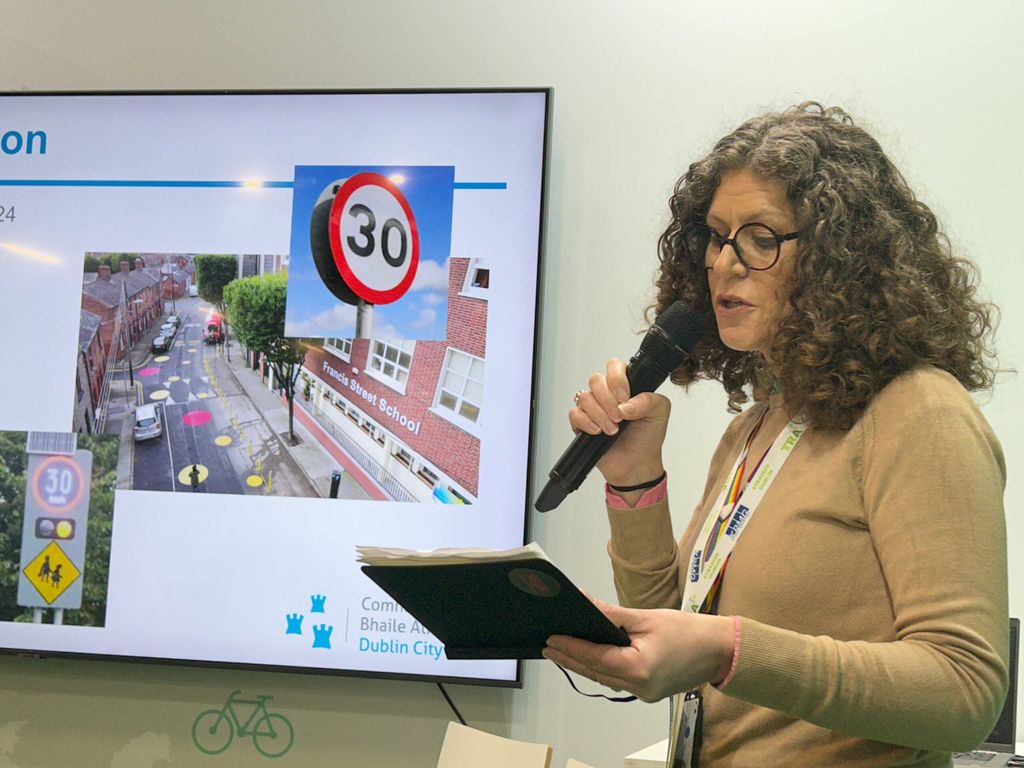
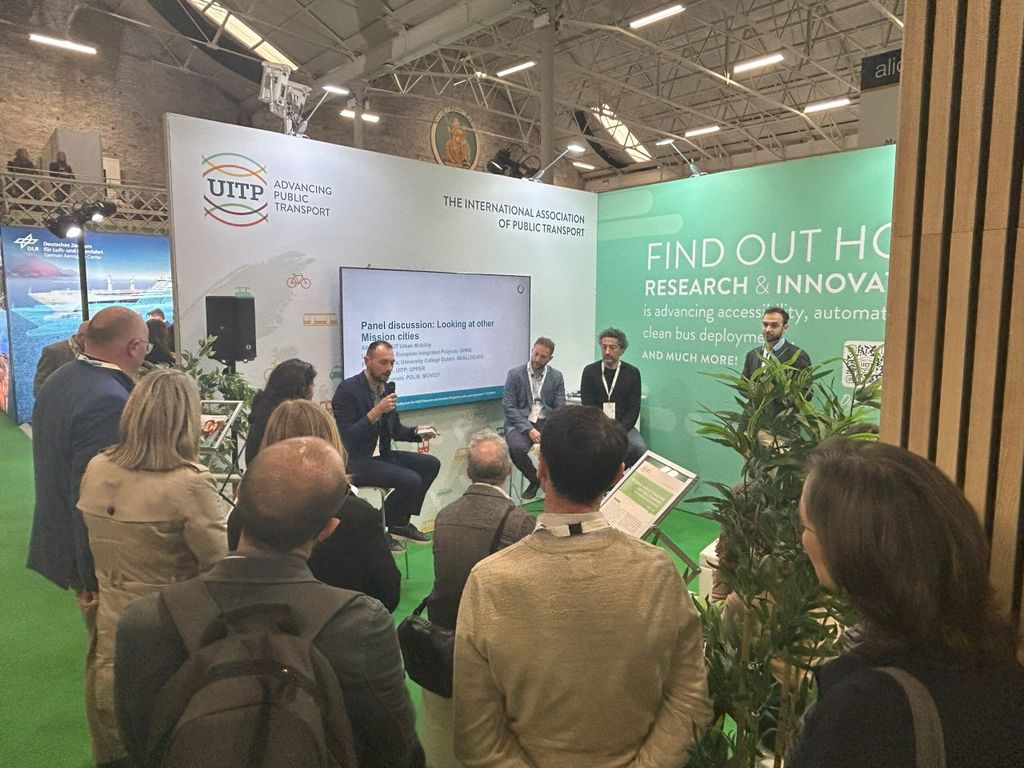
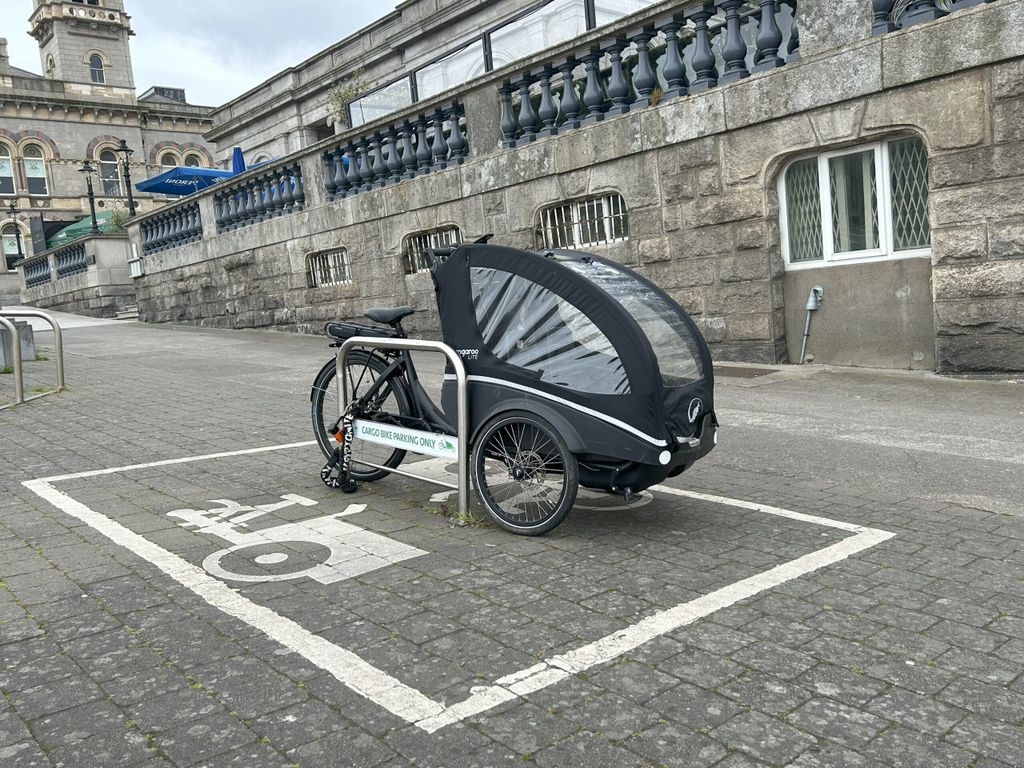
New and stronger partnerships
UITP formed new partnerships and strengthened existing relationships at TRA. For one, UITP Secretary General Mohamed Mezghani presented the TRA Visions Award recognising young researchers. In the European sphere, UITP held high-level discussions with Rosalinde van der Vlies, Clean Planet Director at the European Commission.
In addition, the Secretary General signed a Memorandum of Understanding with TRB, the Transportation Research Board based in Washington D.C, United States.
“Research and innovation can only reach their full potential when it knows no borders. I am thrilled to further strengthen our collaboration with TRB… Following the constant development of our membership in the US region, this partnership will benefit our members and the global transport research community.”
Vehicle automation
The effects of AI and automation are already being felt in the world. UITP’s research and innovation on EU-funded projects R2DATO, SHOW, and ULTIMO focuses on making automated vehicles a reality in Europe and beyond, from shared shuttles to on-demand taxis, trams, and railways.
At TRA, SHOW and ULTIMO held a panel discussion with experts in automated mobility from UITP, Deutsche Bahn, CERTH, and Pforzheim University. The panel discussed the biggest barriers to automated vehicles, from acquiring permits to training staff on new jobs. Having said that, the workforce crisis is also a reason that is driving automated mobility. In fact, by 2030 Germany is set to be short of 87,000 drivers. “So, automation is not creating unemployment, but filling today’s gaps”.
“The fact that a service is automated is novel at the start, but people keep using it because it makes their lives easier.”


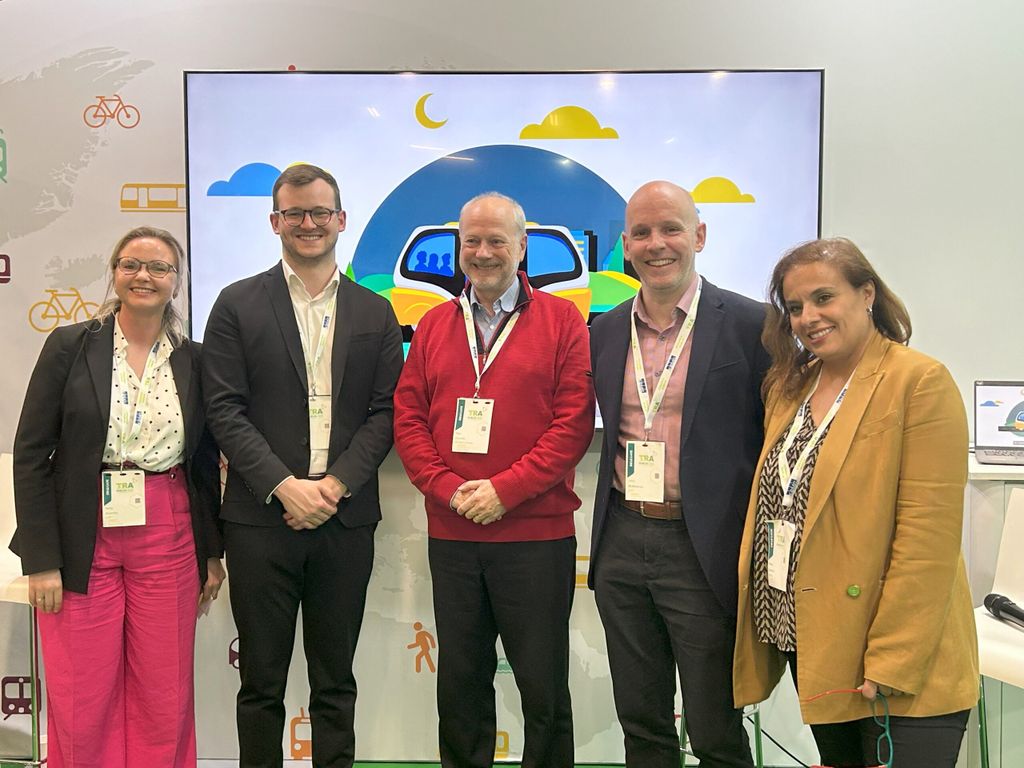
Exploring innovation with Dublin Bus
Another highlight in Dublin was the kind invitation of Dublin Bus to three of their depots, including the newly restored Broadstone depot. Recently completed, the work for Broadstone involved the restoration of a Victorian station building dating back to 1850 and which was one one of Dublin’s six original rail termini.
At the Summerhill and Phibsborough depots, the UITP Team had the honour to witness the modernisation of the maintenance facilities for the bus fleet, including the infrastructure for electric bus charging provided by Hitachi. Late 2023, Dublin Bus celebrated the completion of the works to install the 56 battery-electric bus chargers at Summerhill, making it after Phibsborough the second of two hubs installed for the capital’s new green fleet.
At TRA, UITP held ten sessions at its stand and participated in five of the event’s top discussions. And as a member-led organisation that represents the public transport sector across the world, UITP’s insights on research and innovation are invaluable. At this event and those to come, UITP will continue to work for a safer, more sustainable, and more inclusive future of mobility.

